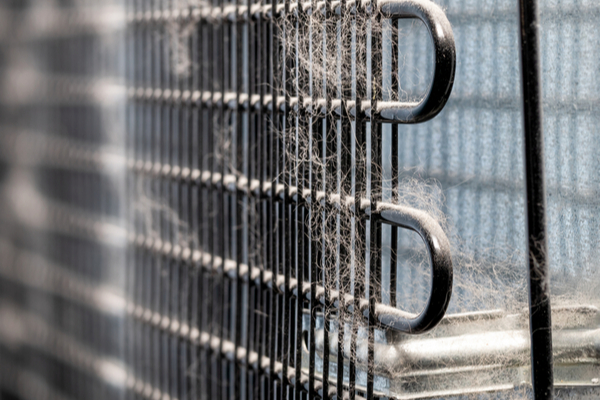- Keep your Window Wells Clean. If you’ve never had a problem with water in a window well, you may never think to clean it out. Here’s what happened to one homeowner who neglected his window wells. After an average rainfall, not even a heavy downpour, a clogged gutter dumped a lot of water next to his house and into his window well. The leaves in the well acted like a pool liner, preventing drainage, and the water level rose higher and higher until the pressure broke the basement windows. Gallons and gallons of water poured into the basement, ruining everything in sight. Unfortunately, he had no insurance coverage for that type of flood. Don’t let this happen to you. But here’s the thing: it’s an easy fix. Keep window wells clean with a cover, available at home centers.
- Lube Garage Door Springs. Coat the overhead torsion springs mounted above roller tracks with a garage door lubricant. All springs will eventually break because of metal fatigue and/or corrosion, but lubing them at least once a year will make them last longer. Spraying can be messy; it’s smart to protect the wall behind the spring with a piece of cardboard. Garage door lubricant is available at home centers.
- Check for Mice Nests. Mice love to winter in enclosed places like engine compartments, window A/C units and lawn tractor nooks and crannies. If a vehicle or piece of equipment has been sitting unused for a while, check for mice nests before you start it up. The last thing you want to do is take out your boat and discover that you have little furry stowaways that have chewed through half the wires. Mice nests can also cause electronics to overheat and can get sucked into and clog carburetor.
- Childproof your Outlets (Even if you Don’t Have Kids). If you have an older home, the exterior walls may be poorly insulated. And when you have poorly insulated walls, the holes that your outlets are in can be areas where the outside cold/heat can enter your home. A simple solution to this is to install child-proof outlet plugs in any unused outlet on an exterior wall. This will close the gaps and reduce the amount of air that can leak through.
- Clean Refrigerator Coils. Refrigerator condenser coils are located on the back of the fridge or across the bottom. When coils are clogged with dust, pet hair and cobwebs, they can’t efficiently release heat. The result is your compressor works harder and longer than it was designed to, using more energy and shortening the life of your fridge. Clean the coils with a coil-cleaning brush and vacuum. A coil-cleaning brush, which is bendable to fit in tight areas, does a thorough job. Look for one online or at appliance stores.
—
Photo Credit: sophiecat / Shutterstock.com
